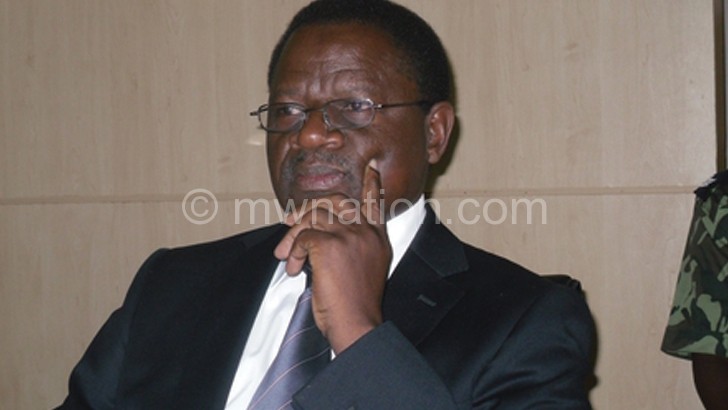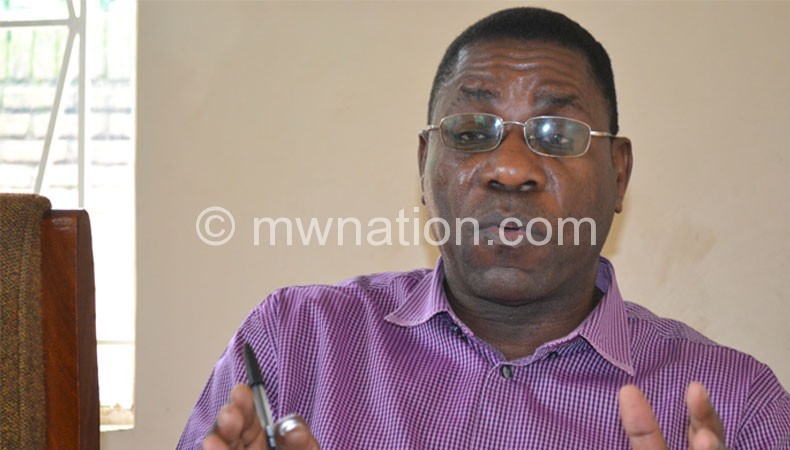It never rains, but pours for Escom
It was a typical case of it never rains, but pours for Electricity Supply Corporation of Malawi (Escom), the country’s sole power utility, which offered consumers little joy in 2015.
During the past year, Escom saw its power generation capacity reduced drastically by contrasting natural factors. For instance, as early as January 13 2015, consumers started experiencing massive load shedding after floods damaged the corporation’s equipment whereas from August the power rationing was attributed to “low water levels” in the Shire River and its source Lake Malawi.

If reactions to Escom’s announcements about power outages or load shedding are anything to go by, the power utility does not command enough public confidence and trust. Not long ago, the Consumers Association of Malawi (Cama) took Escom to court, demanding a change in its brand promise from Power All Day, Everyday to Towards Power All Day because the utility parastatal was nowhere near to providing power around the clock.
Year in and year out, unreliable power supply has featured highly on both the World Bank Doing Business Report and the Malawi Confederation of Chambers of Commerce and Industry (MCCCI)Business Climate Survey as one of the major constraints to doing business in Malawi. Frequent power outages increase the cost of production as industry is forced to invest in alternative power sources such as stand-by generators, which are outside their core business.
During the year under review, Cama sort of politicised the issue of blackouts, accusing Escom of sabotaging the governing Democratic Progressive Party (DPP) through prolonged power outages.
In an August 2015 statement expressing concern over prolonged outages owing to low water levels, Cama executive director John Kapito demanded an explanation from Escom on why there was an increase in load shedding since President Peter Mutharika and his DPP assumed power following their triumph in the May 20 2014 Tripartite Elections.

Kapito argued that there were fewer black outs during the People’s Party (PP) administration between April 2012 and May 2014.
However, Escom chief executive officer John Kandulu dismissed accusations of political sabotage. He insisted the power cuts were a result of reduced water levels in Lake Malawi and Shire River.
He said 260 cubic metres water flow per second is needed for optimal operation of the hydro power generating machines.
Said Kandulu: “Of course, we respect that everyone is entitled to their opinion. But our main challenge is reduced water levels in Lake Malawi and Shire River.
“Water is flowing at 208 cubic metres per second and we cannot generate enough power with this level of flow.”
Apparently, by October end, Escom’s generation capacity had reduced to 66 percent during peak demand hours and 80 percent at off-peak hours, according to an Escom statement.
The low water levels experienced by Escom were attributed to climate change effects as other countries in the region, notably Tanzania, Zambia and Zimbabwe, were also affected.
Unreliable power supply has remained one of the major challenges in the energy sector. Promises have been made about plans to increase power generation through new hydro power plants and alternative sources, including solar and the obsolete technology of coal-fired power plants.
Escom is set to be split into two companies-one for distribution and transmission and the other responsible for generation-by June 2016 under the Power Market Restructuring (PMR), according to Ministry of Natural Resources, Energy and Mining Principal Secretary Ben Botolo.
In a brief to journalists on PMR, Botolo hinted that the splitting of Escom should be finalised by June 2016 with any spill over of the process finalised in the first quarter of 2017.
Under the current power market structure, Escom enjoys a monopoly which some analysts have said is a major impediment to private sector participation and not conducive to technology or business innovation to spur economic growth and efficiency.
Reforms are a must if Malawians are to access electricity around the clock. Electricity is a catalyst to development and economic growth. Escom currently fails to supply power around the clock to about 10 percent of the country’s population who are connected to the national grid.
KEY DATES
January 13: Nkula B Hydro Power Station, which produces 100MW of the country’s total installed power of 351MW, is rendered dysfunctional due to flooding of Shire River which damaged intake screens.
January 22: Nkula A machines are re-commissioned, restoring the previously lost 116MW
August 10: Escom announces that consumers should brace for more power outages due to reduced water levels in Lake Malawi and its sole outlet Shire River which are the major source of hydro electricity generation in the country. n





